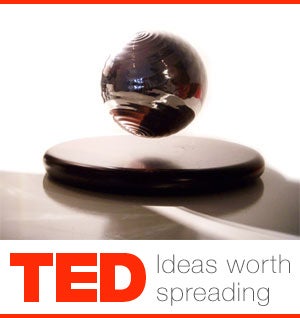Make life a game and save the world

Your support helps us to tell the story
From reproductive rights to climate change to Big Tech, The Independent is on the ground when the story is developing. Whether it's investigating the financials of Elon Musk's pro-Trump PAC or producing our latest documentary, 'The A Word', which shines a light on the American women fighting for reproductive rights, we know how important it is to parse out the facts from the messaging.
At such a critical moment in US history, we need reporters on the ground. Your donation allows us to keep sending journalists to speak to both sides of the story.
The Independent is trusted by Americans across the entire political spectrum. And unlike many other quality news outlets, we choose not to lock Americans out of our reporting and analysis with paywalls. We believe quality journalism should be available to everyone, paid for by those who can afford it.
Your support makes all the difference.Game designer Jane McGonigal is adamant that epic wins can save the world.
Epic wins are videogame moments when players unflinchingly take on horrendous enemies for a greater good, and usually a mountain of experience points that let them "level-up" characters with improved abilities.
"A goal for the next decade is to make it as easy to save the world in real life as it is to save the world in online games," McGonigal told a rapt audience at a prestigious TED Conference that ends here Saturday.
Approximately three billion hours are devoted weekly to playing videogames online.
The veteran game designer argued that the amount of play time must be bumped up to 21 billion hours weekly to solve global ills such as hunger, poverty, and climate change.
"I'm serious," McGonigal said in a playful presentation. "In the game world we become the best version of ourselves. We feel we are not as good in reality as we are in games."
If life better reflected games, people would be quickly entrusted with world-saving missions compatible with their talents and there would be "tons of collaborators" ready to help along the way.
And, there would be plenty of positive feedback - leveling up - to keep people inspired.
That is the way it is in "World of Warcraft," the leading online role-playing game where players have already spent the equivalent of 5.93 million years solving problems and vanquishing evil in that virtual realm.
If life were crafted more like a game, that passion and persistence could be unleashed on real problems, according to McGonigal.
Studies cited indicated that it is not unusual for game-loving US youths to each log 10,000 hours playing online by the time they reach the age of 21. That equates to the amount of time spent in public school.
"We have a parallel track of education," McGonigal said."We are teaching urgent optimism' the desire to act immediately to tackle any obstacle with the belief in success - gamers always think they can win."
McGonigal and the World Bank Institute in March will launch an online Evoke game at urgentevoke.com that challenges players to complete 10 quests in as many weeks, with the missions tied to ills facing the planet.
Winners will get to claim World Bank social innovator titles and top players will earn scholarships and mentor programs.
"Gamers are super-empowered, hopeful individuals," McGonigal said. "We are using games today to escape real world suffering, everything that is broken in the real environment, but it doesn't have to end there."
Her prior game creations include "World Without Oil" which challenges players to thrive in that scenario, and "Superstruct" that calls on players to re-shape society to survive threats to life on the planet.
"We have to start making the real world more like a game," McGonigal said. "We want to imagine epic wins and give people the means to create epic wins."
Join our commenting forum
Join thought-provoking conversations, follow other Independent readers and see their replies
Comments